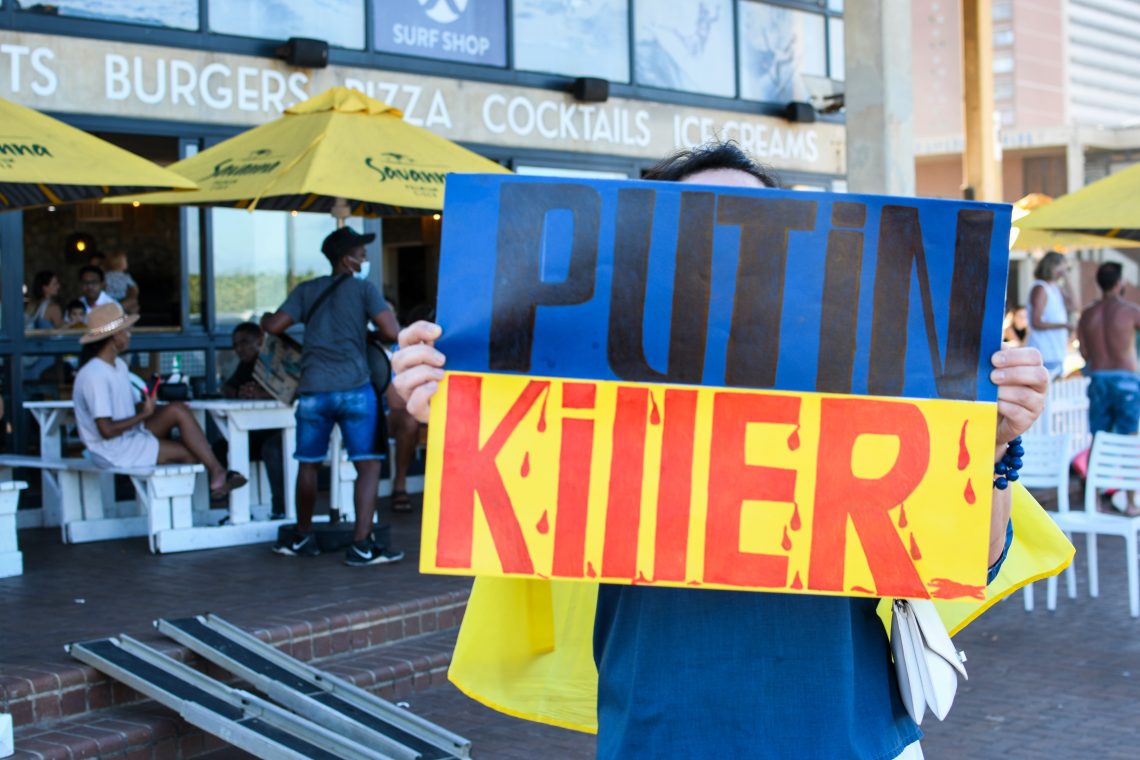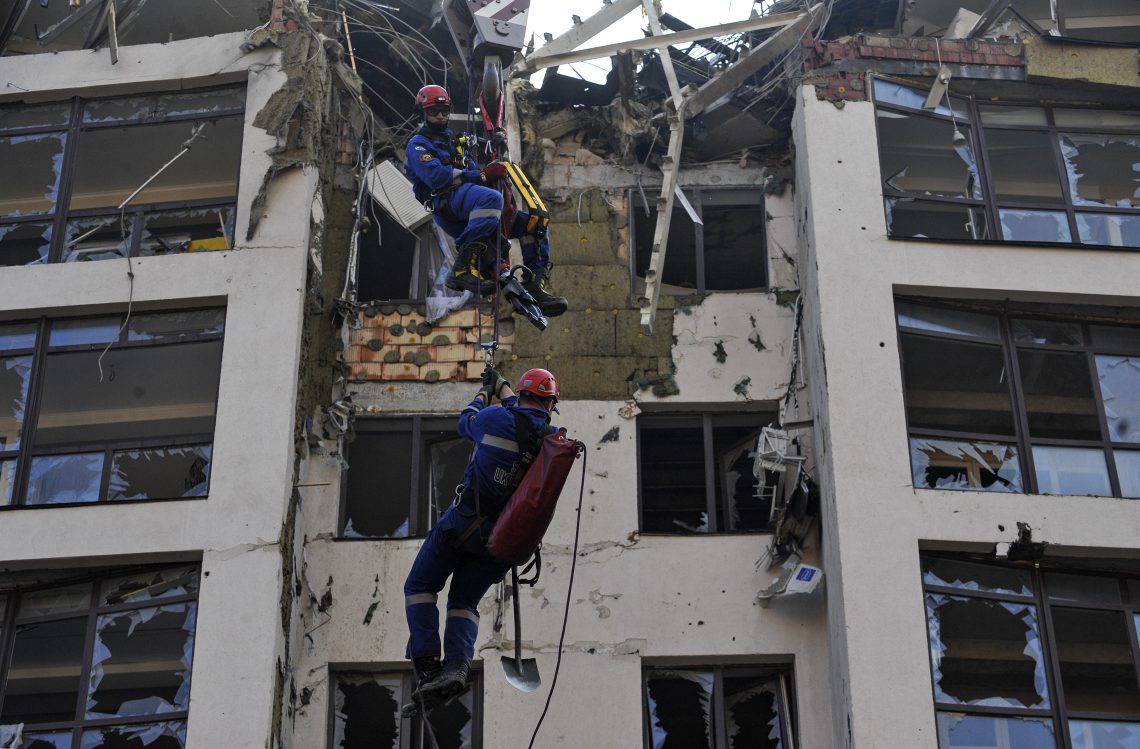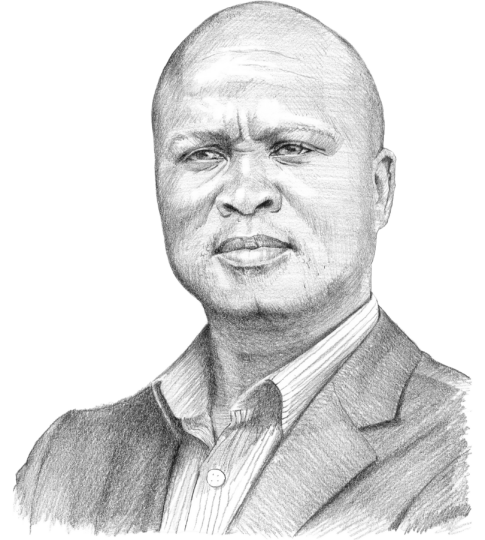South Africa confronts cascading fallout of Russia’s war
Human rights activists and others are pressuring governments in Africa to drop their neutrality to Russia’s invasion, citing the imperative to take a moral stance.

© Getty Images
In a nutshell
- African leaders had hoped to avoid taking sides between Russia and Ukraine
- A residual fondness for Moscow remains from Soviet backing of liberation wars
- Staying on the sidelines will eventually put South Africa at odds with the West
The hope was that the impact of Russia’s war on Ukraine could be limited to Europe. But the consequences are turning out to be more far-reaching and possibly longer-lasting, including for countries in Asia and Africa that have maintained neutrality in the conflict.
The initial assumption of a quick end to the war proved flawed as Ukrainian forces put up a ferocious fight in defense of their homeland. With the war now in its fifth month, the calls for negotiations to end the conflict look increasingly hopeless as Russia’s invasion persists with no end in sight.
And, as the war drags on, the repercussions are being felt beyond Europe and are taking on global dimensions. The war has further exposed global supply chain shortcomings that surfaced amid the Covid-19 epidemic. Food and fuel prices are increasing all over the region, including in South Africa, which faces record-high fuel prices.
South Africa’s neutrality is now criticized as harmful to its national interests.
As the bite of the economic damage worsens, Pretoria faces mounting criticism for failing to condemn Russia, whose aggression is destabilizing fragile democracies in markets that were already battered by the pandemic. The rising cost of living threatens social stability in South Africa, with a population of 60 million people, and its surrounding region. Most countries in Africa import food and are also integrated into the global supply chain network. Any constraints and price hikes caused by the invasion of Ukraine are raising the ire of those who depend on a stable supply chain network. Most countries cannot afford global disruptions that would be entirely avoidable if Moscow would end its war. In such an environment, neutrality in the conflict is increasingly seen as siding with Russia.
South Africa’s neutrality is now criticized as harmful to its national interests, given its strong trade partnerships with the European Union and other Western powers, including the United States.
Initially, after the invasion, Pretoria announced through its foreign secretary, Naledi Pandor, that Russia should leave Ukraine. The statement was subsequently withdrawn, possibly due to pressure from the governing African National Congress (ANC). The ANC enjoyed a long historic relationship with the Soviet Union during the liberation struggles against the South African apartheid government. Russia also enjoys good relations with other countries in the Southern Africa Development Community (SADC). These warm ties have shaped the position of most countries in the region, particularly South Africa.
There will be more activism protesting the failure of governments in Africa to condemn Russia
Russia is, therefore, reaping the benefits of the political capital it has invested in the region.
This may change, as human rights activists, nongovernmental organizations (NGOs) and opposition political parties delve into an unchartered diplomatic territory, challenging the morality of South Africa’s neutrality.
The official opposition party leader in South Africa undertook a recent visit to Ukraine on a fact-finding mission, responding to growing public concern over the horrors of Russia’s war.
The ruling ANC in South Africa is isolated in its failure to condemn Russia. Since South Africa is founded on global solidarity for human rights, it is difficult for some to understand how Pretoria could fail to speak out against the Russian invasion. In South Africa, there are efforts by activists to reconcile diplomacy with human rights. It was through court litigation by nongovernmental organizations that the government in South Africa was barred from entering a contract with Russia to build a nuclear power station during Jacob Zuma’s controversial presidency.

Scenarios
The longer that the war in Ukraine drags on, the wider the fallout beyond Europe.
Sanctions against Russia will complicate South Africa’s relations with Moscow. A position of neutrality, considering Russia’s transgressions, is increasingly untenable and has become a domestic political issue. The NGOs and human rights activists in the SADC have begun to raise their voices, no longer willing to cede diplomacy exclusively to governments. There will be more activism protesting the failure of governments in Africa to condemn Russia.
This campaign will further bring to light the extent to which regional political leaders are entangled with Russian interests, often at the expense of democratic practices. Whether governments relent on the Russian crisis, activists in the region – and particularly in South Africa – will emphasize the human rights dimension in diplomacy. Without Russia’s invasion of Ukraine, these debates may not be happening today.








